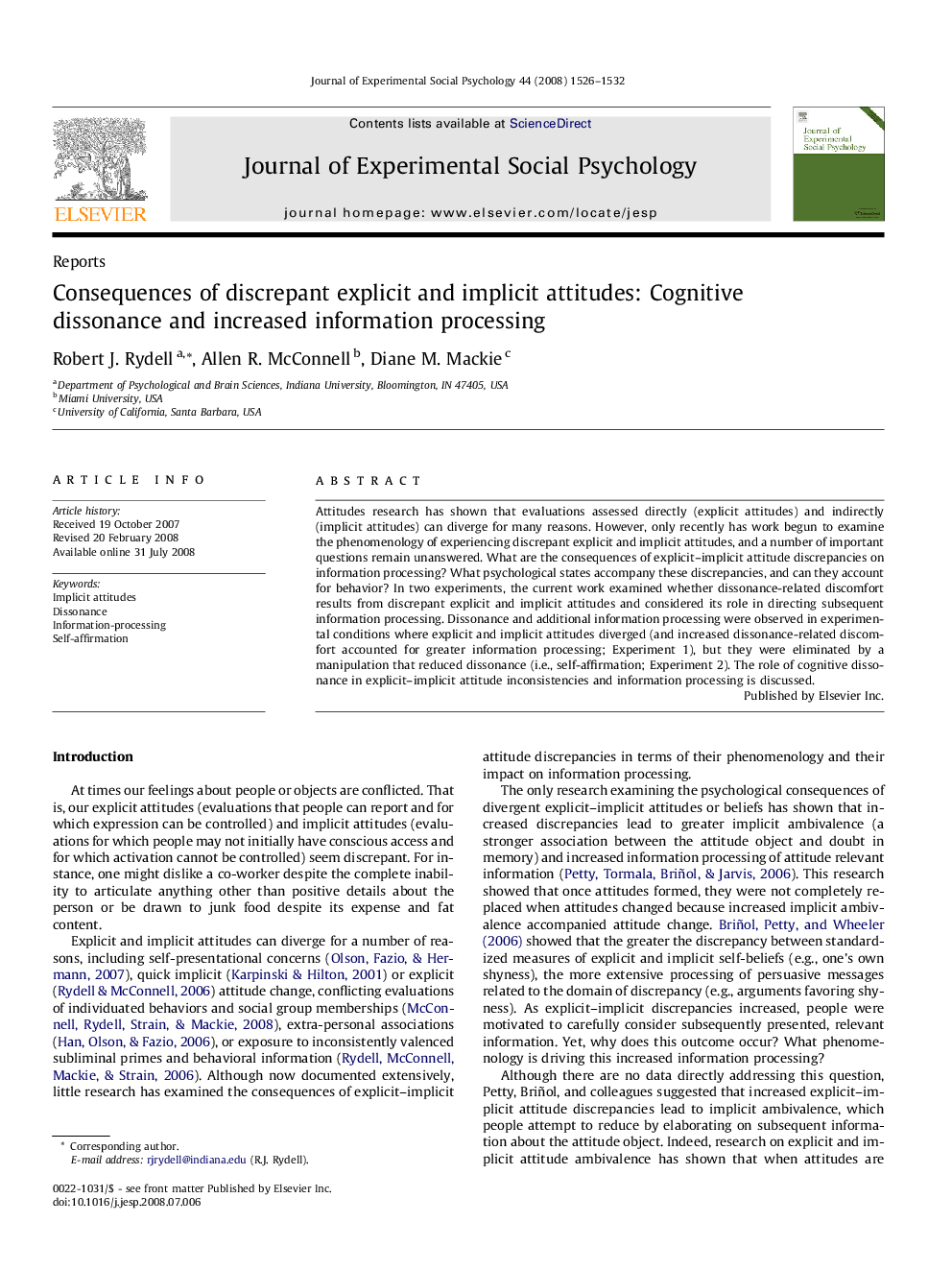| Article ID | Journal | Published Year | Pages | File Type |
|---|---|---|---|---|
| 949060 | Journal of Experimental Social Psychology | 2008 | 7 Pages |
Attitudes research has shown that evaluations assessed directly (explicit attitudes) and indirectly (implicit attitudes) can diverge for many reasons. However, only recently has work begun to examine the phenomenology of experiencing discrepant explicit and implicit attitudes, and a number of important questions remain unanswered. What are the consequences of explicit–implicit attitude discrepancies on information processing? What psychological states accompany these discrepancies, and can they account for behavior? In two experiments, the current work examined whether dissonance-related discomfort results from discrepant explicit and implicit attitudes and considered its role in directing subsequent information processing. Dissonance and additional information processing were observed in experimental conditions where explicit and implicit attitudes diverged (and increased dissonance-related discomfort accounted for greater information processing; Experiment 1), but they were eliminated by a manipulation that reduced dissonance (i.e., self-affirmation; Experiment 2). The role of cognitive dissonance in explicit–implicit attitude inconsistencies and information processing is discussed.
